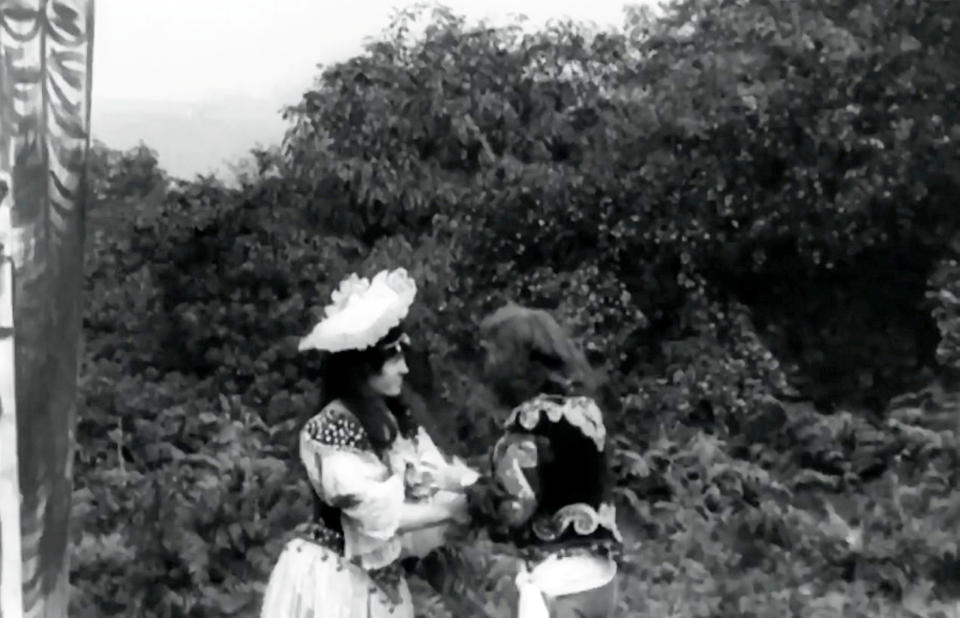The first-ever Western movie was actually shot in Blackburn

When it comes to Westerns, you’d be forgiven for thinking they must all have been filmed in America.
But new research has revealed that the first ever Western was actually filmed in England - Blackburn in Lancashire to be precise.
'Kidnapping By Indians' is about a pair of cowboys who rescue a white woman from native American kidnappers.
Rather than being shot in the United States, the two-minute movie was shot in Lancashire countryside in 1899 - four years before The Great Train Robbery which until now was widely seen as the genre's first film.
Made by Blackburn film company Mitchell & Kenyon, which was a pioneer of early commercial motion pictures at the start of the 20th century.

Mitchell & Kenyon's films were found in barrels underneath their old headquarters in 1994.
Many are now kept by the British Film Institute (BFI), which revealed that the first proper study of Kidnapping By Indians has shown it was made in 1899 and predates what was previously held as the first ever Western.
READ MORE: Robert Pattinson is reading as many comics as possible for 'assimilation' ahead of 'The Batman'
BFI silent film curator Bryony Dixon said: "It's remarkable and an absolute joy to think the first Western was shot in Blackburn.
"The debate about what a Western actually is can be argued until the cows come home but Kidnapping By Indians definitely qualifies as on in my opinion. There are cowboys and Indians in the film and it really does encapsulate the idea of a western frontier-type story."

Kidnapping By Indians was shot in fields close to Blackburn and the producers used local actors, including some made up as native Americans.
The story line involves a white woman being saved from the clutches of native Americans by white cowboys, which was a common theme in early Western cinema.
The initial link between Kidnapping By Indians and the Western genre was made by Blackburn artist and film-lover Jamie Holman, who found the film while researching links between the cotton industry and film history in the Lancashire town.
Mr Holman said the film was "hiding in plain sight", adding that he just "put it into context".

 Yahoo Movies
Yahoo Movies 

